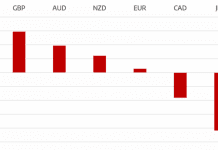Dodd-Frank Act
One of the most recent and pertinent rules applying to this industry is the Dodd-Frank Act, which forbids banks from having an ownership interest or from sponsoring hedge funds or covered funds. Covered funds can be an investment company, foreign funds, or a community pool; however, foreign public funds are excluded from the definition of covered funds.
Sponsorship of funds refers to the managing member or partner of a covered fund, person who selects or controls directors of a covered fund, and/or an entity that shares the name of the covered fund. Ownership refers to the partnership interest or other similar interests in a covered fund such as someone who has the power to select, remove and control members/partners of a covered fund.
According to the final rule, there are other exemptions. This includes the asset management exemption under which the bank can provide certain services to the covered fund. The bank cannot own more than three percent of the outstanding ownership of the covered fund and certain affiliate transactions between the bank and the people associated with a covered fund.
Other changes included the review of the definition of the accredited investor, which would require readjustment of the income tests and revision in terms of inflation.
JOBS Act
Solicitation guidance and bad actor disqualification are two issues this act deals with. Private fund advisers were allowed to advertise, given that buyers of securities were accredited investors. The issuer is also required to disclose any disqualifying events that involve the covered persons. Covered persons must issue securities in the same offering as the issuer. The issuers have to determine the circumstances in which the bad actor disqualification is applicable.
Ensuring Cyber Security
Other areas addressed included the internet safety issue and the problems it poses for the securities industry. Hacking, account takeover, identity theft and lack of knowledge are the biggest issues for which the following was recommended:
- Emphasis be placed on innovative and evolving tools to deal with new threats
- Develop an understanding of a firms weak areas
- Greater information protection internally
- Implementation of security measure at every level of the enterprise
There is also an increased need to deal with risk linked to remote money transfers, third party interaction and unauthorized access.
Diligence Risk Alert
The diligence risk alert provides information on the measures taken by investment advisers, such as a trend towards acquiring more information from investment managers, taking third party (specialist help and online tools) to analyze and verify information, conducting quantitative analysis on data, and focusing on aspects such as auditing, liquidity and legalities. The investment advisers reviews reveal that there are also other problematic risk-prone areas. This includes a lack of transparency, increased complexity, lack of knowledge and experience, problems with the personnel, aspects of infrastructure, and the valuation system.
Definition of Knowledgeable Employee
The definition of a knowledgeable employee has also been explained. A knowledgeable employee includes the Executive Officers and the participating employees. This is determined not by the titles of the people, but by an analysis of their job. The investment manager ultimately determines who qualifies as a knowledgeable employee and they have to maintain a record for explicating why a certain person qualifies for this title.
Trading Division Letter
According to the trading division letter, in some cases, the SEC does not require those who get transaction-based compensation to register as broker-dealers and this constitutes an increase in flexibility while determining broker-dealers.
Extension of Exemptions for Security-Based Swap Agreements
The Interim Final Rules have been extended for a further three years, which provide exemption for swap agreements. Other issues included the highlighting of the importance of cooperation of private fund advisers and SEC officials in order to ensure compliance with SEC rules. The hedge funds valuation process was a key concern along with the lack of compliance programs, policies, which do not address a firms problems, lack of ethics and a tendency to repeat offences.
The National Examination Program (NEP) has also been revamped in order to detect high-risk entities. Fraud detection, conflict resolution, increased use of technology, compliance with the General Solicitation Rule, sales practices related to retirement funds and rollovers, and conflicts with broker-deals/investment advisers with dual registration are all issues that the NEPs initiatives focus on. The list of core risks includes responsibility and safekeeping of a clients assets, conflicts in investment adviser business models, and the correctness and completeness of advisers claims. Other indicators of wrongdoing will also be reviewed in addition with the National Exam Analytics Tool (NEAT), which will help identify firm misconduct.
Moreover, investment advisers are prohibited from publishing testimonials about themselves while only an independent site can publish reviews and comments without editing. In addition, it is also under discussion whether dealings in crypto-currencies such as Bitcoin should be regulated or not; this new development will significantly impact the hedge fund industry.
HedgeThink.com is the fund industry’s leading news, research and analysis source for individual and institutional accredited investors and professionals






































